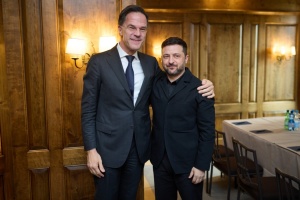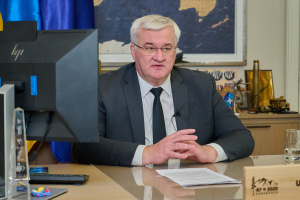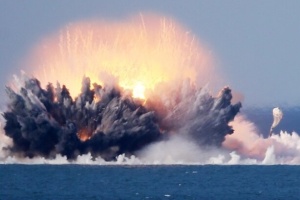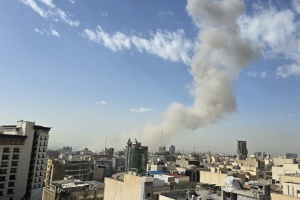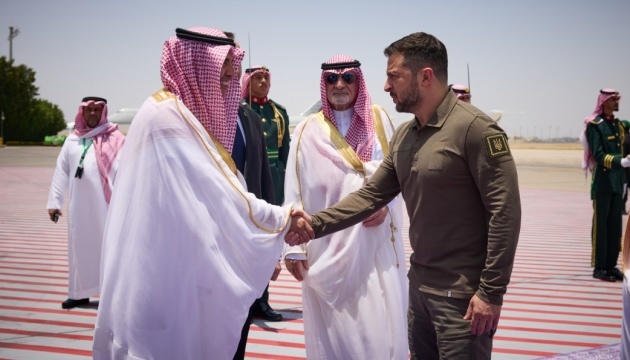
On eve of meeting in Jeddah. What Saudi Arabia like today
This Saturday, a meeting of political and security advisers to the leaders of the states will begin in the Saudi city of Jeddah to discuss the implementation of Ukraine's initiatives to restore sustainable and just peace. In his article for Ukrinform, Ambassador of Ukraine to Saudi Arabia Anatolii Petrenko shares his thoughts on the politics, economy, women's rights and religious freedom in Saudi Arabia, as well as the development of bilateral relations with Ukraine, and why this country will host the meeting.
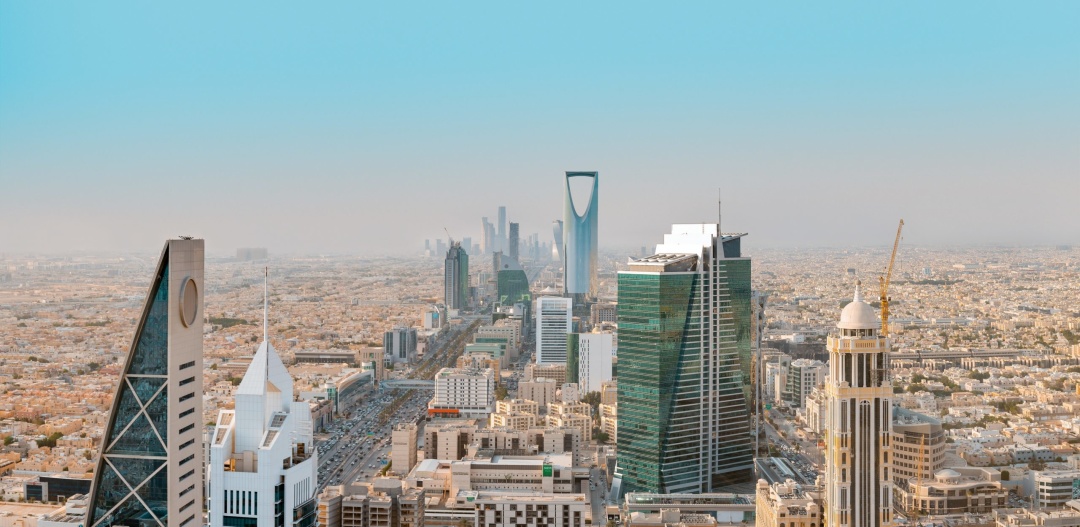
THE REAL AND MODERN SAUDI ARABIA
Traditionally, Saudi Arabia has been portrayed as a country of exorbitant luxury, inexhaustible oil deposits, conservative order, and fundamentalist extremism. There is also a perception that the population living in the Kingdom is shackled by rigid social and legal norms and burdened by inflexible and strict religious dogma.
In fact, the reality shows a different state of affairs. These familiar and "convenient" stereotypes have been formed in our society for decades and, by inertia, continue to exist in public opinion and circulate in the Ukrainian media space, supporting an outdated and conservative impression of the Middle Eastern country.
For example, we are used to hearing that women in a Muslim country, particularly in the Kingdom, have no rights and must completely obey the male part of the family (father, husband, brother). There is an unjustifiably widespread distorted image of Saudi society, in which a certain part of the population seems to continue to live in the desert, without civilized benefits and in abject poverty, while the other part possesses incomparable and excessive wealth, not limiting itself to any whims and fancies. Particularly disconcerting is the widespread perception of a high level of radical sentiment in the country, rejection of religions other than Islam, and an allegedly favorable attitude toward the "idea of terrorism," which means a dangerous crime situation in the Kingdom and special risks for foreigners living there.
While working in the Kingdom, I have repeatedly had the opportunity to see that such views are biased and outdated. Progress and globalization have pushed the country to undergo a radical and systemic transformation. The most characteristic processes taking place in modern Saudi Arabia are social liberalization, institutional reform, and economic diversification. The country is modernizing, borrowing professional foreign experience and demonstrating tangible success in transforming its public institutions.
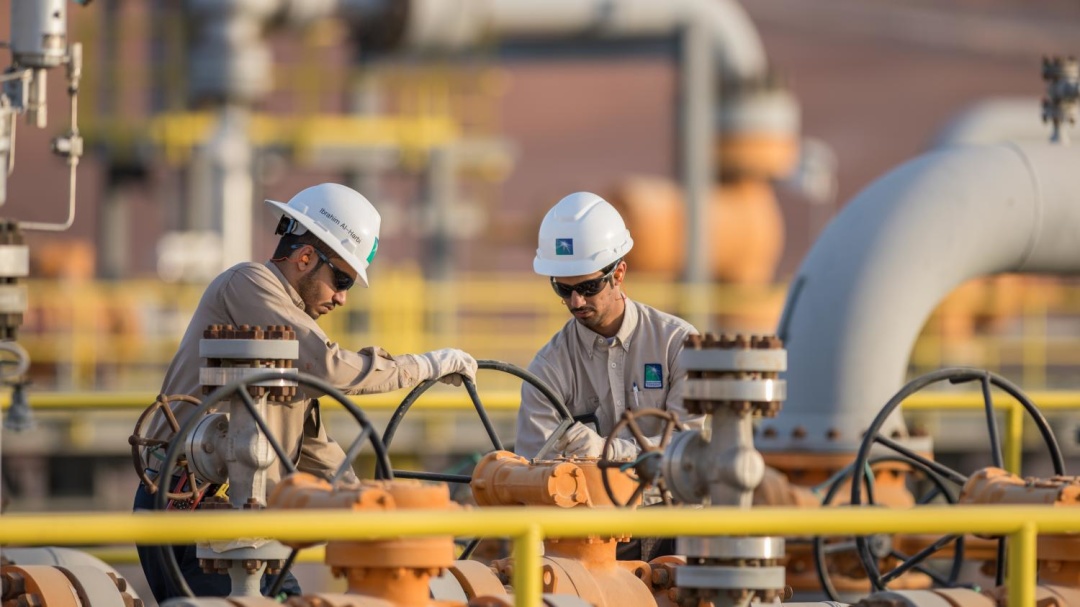
THE MOST DYNAMIC ECONOMY AMONG THE G20
According to the International Monetary Fund, in 2022, Saudi Arabia demonstrated the most rapid economic development among the G20 countries. Due to the growth of oil revenues and the expansion of the non-oil sector, the country's economic growth rate was 8.7%. To this should be added that the state has stimulated an increase in private consumption and continues to implement economic reforms within the framework of the KSA's national development plan "Vision 2030".
The main goal of the ambitious Vision 2030 plan is to diversify the country's economy and radically reduce its dependence on the revenues received by the Kingdom from the trade in national natural resources. By 2030, the Kingdom plans to increase the share of non-oil exports in non-oil GDP to 50%. The national plan supports the development of promising sectors of the economy and encourages additional investment in the country.
Driven by the desire to enhance diversification and increase employment opportunities, the government has developed the IKTVA (In-Kingdom Total Value Add) program, which provides for the development of strategic industrial and economic areas in the Kingdom through more intensive localization of production.
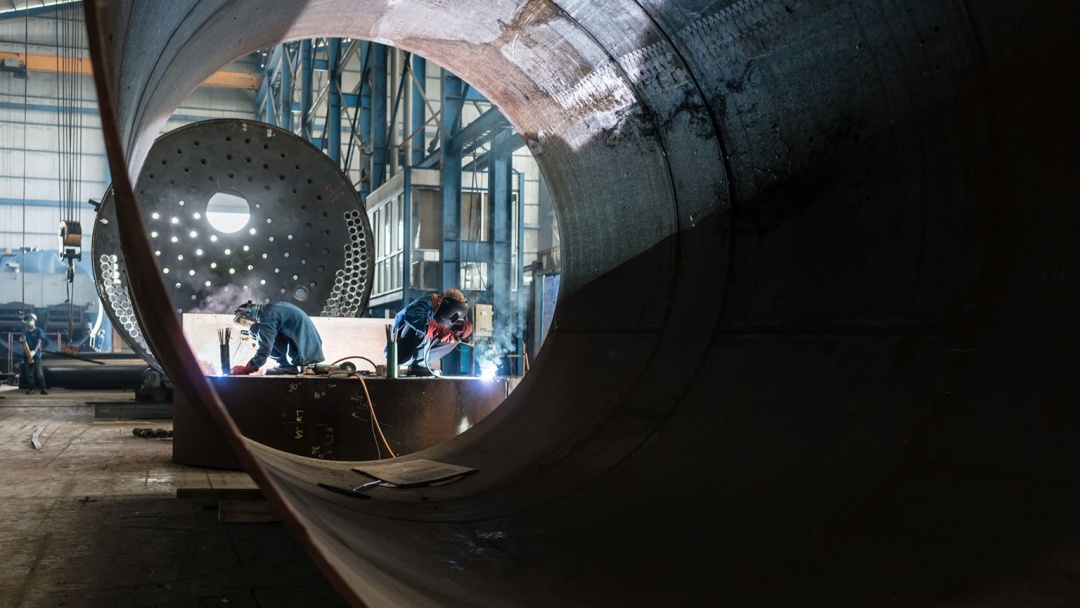
The Kingdom's leadership is paying special attention to the development of the mining sector: a network of industrial towns has been created, a separate sectoral investment regime has been introduced, and logistics infrastructure has been established.
Saudi Arabia has expanded the renewable energy sector, which also demonstrates the Kingdom's increased attention to the environment. The recently implemented Green Saudi Arabia and Green Middle East initiatives are aimed at overcoming climate change and accelerating the transition to clean energy sources. The programs envisage reducing carbon emissions in the region by 60% by increasing the use of renewable energy sources and planting 50 billion trees (10 billion of which are in the Kingdom) and increasing the area of nature reserves. Saudi Arabia plans to produce 50% of its energy from renewable sources by 2030. And in 2021, the Crown Prince announced the Kingdom's plans to reduce carbon dioxide emissions to zero by 2060.
The government is focusing a significant part of its efforts on increasing the country's attractiveness to foreign audiences. The tourism and entertainment sectors play a key role in this regard. The state has developed and is implementing a strategy: it has created the Tourism Development Fund, initiated a digital agenda, introduced tourist visas, and pays special attention to the development of tourist locations and facilities. As a result of these measures, the Kingdom plans to increase the share of tourism revenues in GDP to 10% and create 1 million additional jobs.
The gaming industry is developing at a noticeable pace. In the Kingdom, where 70% of the population is under the age of 35, there are about 23.5 million gamers. According to Brian Ward, CEO of Savvy Gaming Group, a recently founded Saudi leading gaming company, esports could bring more than USD 13 billion to the Kingdom's GDP by 2030 and provide 39,000 additional jobs.
The country is rapidly implementing the "Saudization" policy, which provides for an increase in the share of the workforce from among Saudi citizens. In 2022, the Ministry of Labor and Social Development of the KSA launched the next stage of the Tawteen program, which plans to create a total of 170,000 new jobs in tourism, industry, healthcare, logistics and transportation, real estate and construction, trade, etc.
The country's leadership is focusing on increasing the information technology component of economic growth. Knowledge and innovation play an important role in increasing the competitiveness of the economy and its components. Saudi Arabia is in the process of creating the necessary innovative technological infrastructure (economic cities, research centers and laboratories, etc.) and a highly skilled workforce (educational institutions, training institutes, etc.), which will further strengthen the economic direction.
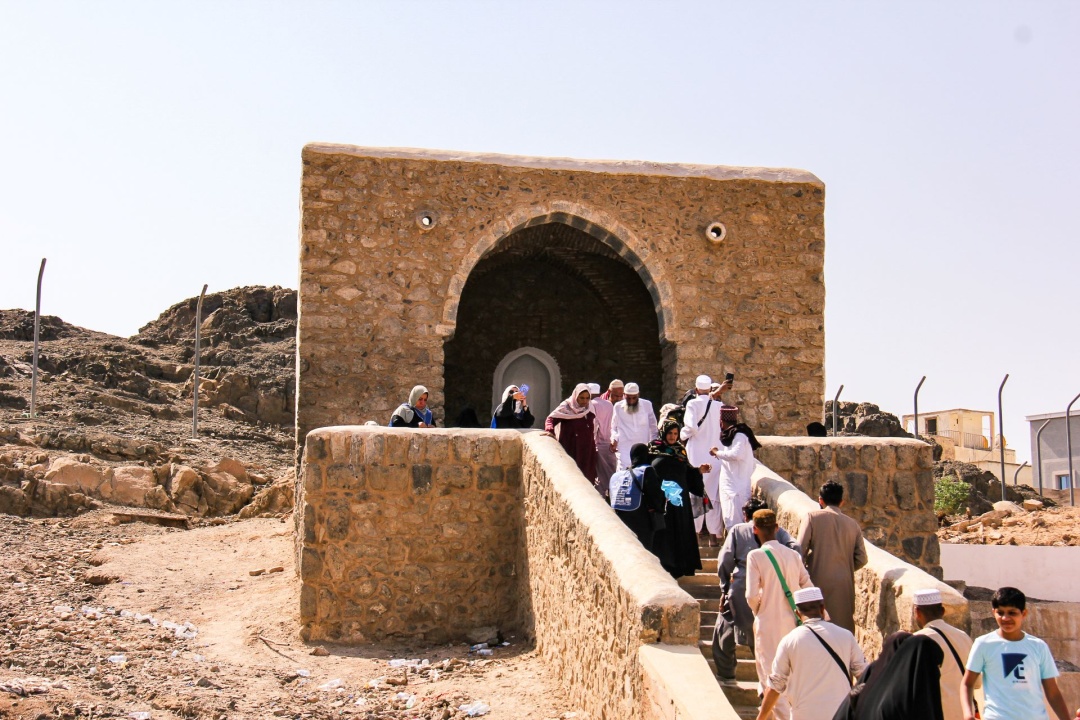
SOCIETY: HISTORICAL SHIFTS
In September 2019, the Kingdom opened its doors to tourists from 49 countries. Ukraine was among them. This is truly a historic moment for a conservative society that for a long time did not dare to fully reveal itself and its country to the world. But today, Saudi citizens are happy and hospitable to welcome foreigners, representatives of other religions, beliefs, traditions, and cultures to Saudi soil.
Liberalization is gradually covering all spheres of life of the Kingdom's citizens, and this has already had an impact on the status of women in society.
Saudi women are getting more and more employment opportunities: in 2022, the female population accounted for 36% of the country's total workforce, which is 6% more than the figure that was planned to be reached by 2030. In 2019, women were allowed to serve in the Armed Forces of KSA, and in 2021, the first group of women in the military was trained. High-level management positions in the state governance system are gradually being filled with women. Women have been appointed to the positions of Deputy Foreign Minister, Minister of Tourism, and Secretary General of the Cabinet of Ministers of the KSA. This year, the first Saudi female astronaut, Rayana Barnawi, joined the exploration of outer space by participating in a mission to the International Space Station.
In 2018, King Salman bin Abdulaziz issued a decree granting women the right to drive vehicles. This was one of the most high-profile events that dramatically changed the perception of Saudi women in the eyes of society, particularly its male part.
Women's rights are also expanding as part of the ongoing multi-level legal reform in family law: last year, the Personal Status Law came into force, strengthening women's rights regarding child custody and expanding the regulatory framework aimed at protecting the rights and interests of children.
It is no secret that religion as a phenomenon and a direction of belief is an integral part of Muslim life. Moreover, Islam literally saturates every sphere of society's life, and a Muslim's spiritual relationship with the Almighty is a special, private sacrament. Saudi citizens are no exception: they spend every day strictly observing all mandatory religious precepts and canons. At the same time, their responsible and particularly sensitive attitude to Islamic teachings does not indicate intolerance of other religions. Recent social studies demonstrate a positive perception of the idea of religious diversity by Muslims in Saudi Arabia and the prospects for broad integration of other cultures into the Kingdom's social environment.
Particularly effective in this area is the King Abdulaziz Center for National Dialogue, which promotes a culture of dialogue and respect for diverse cultural manifestations, while preserving national unity and promoting effective communication interaction at the national and international levels.
It is worth mentioning the Forum of Common Values among Religious Followers, which took place in Riyadh in 2022. This event, for the first time in the history of the Kingdom, was attended by representatives of the 5 major world religions: Christianity, Islam, Judaism, Buddhism, and Hinduism. The main goal of the Forum was to identify common values for religious representatives and to develop a vision of ways to strengthen mutual understanding, cooperation and solidarity among them.
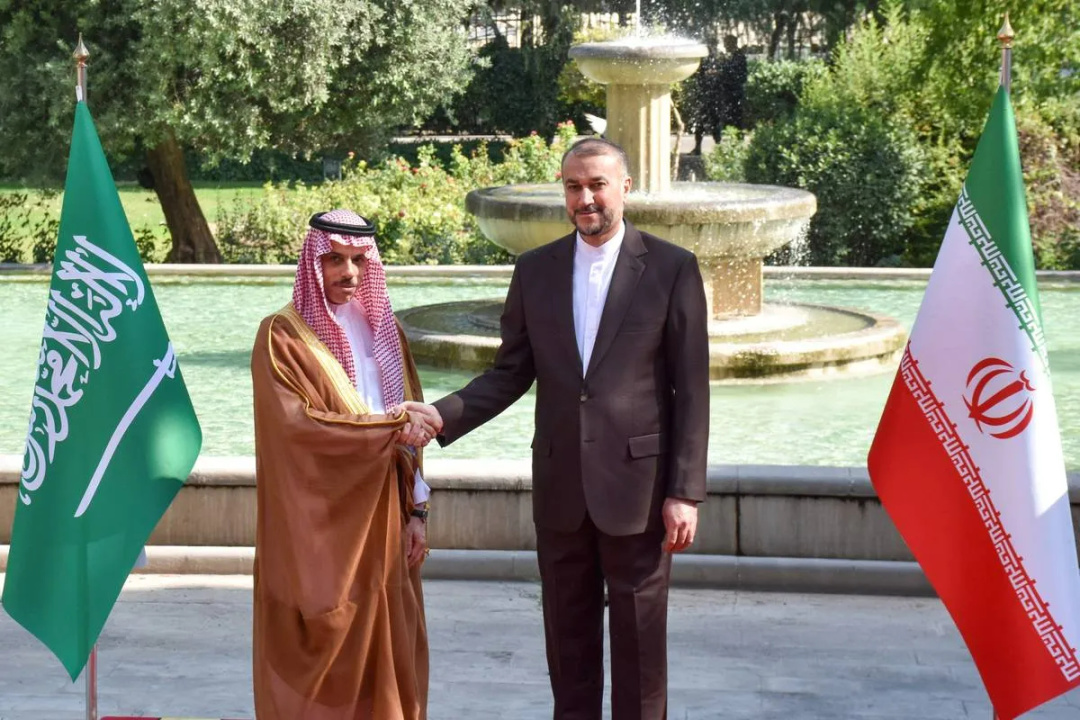
FOREIGN POLICY STRATEGY
Saudi Arabia is confidently building the image of a regional leader that cares about stability and security in the Middle East and demonstrates independence in resolving local threats and challenges. This can be seen especially clearly in this year's process of normalization of Saudi-Iranian relations, which is designed to end the longstanding confrontation between the two countries and reduce tensions in the region. The next step was the restoration of diplomatic relations with Syria, its full membership in the Arab League, and its return to the Arab family. Saudi Arabia, despite the objections of the international community, took the courage to lead this process. In the past years, cases of restoring ties with other individual countries in the region, including Qatar and Turkey, have been equally notable. This year, Riyadh resumed diplomatic relations with Canada, which had a positive impact on the Kingdom's image among Western audiences.
The country demonstrates pragmatic flexibility, finding useful partners and forming situational alliances to overcome certain regional crises. Another manifestation of Saudi diplomacy was the Kingdom's participation, in tandem with the United States, in resolving the ongoing conflict in Sudan, which threatens to escalate into a zone of regional instability and therefore requires concerted and collective action to neutralize undesirable consequences.
Saudi Arabia's foreign policy development strategy is characterized by multi-vector and multilateralism. The country is trying to diversify and diversify its foreign policy ties by establishing and intensifying cooperation with international players of unlimited reach.
For Ukraine, the trend in the development of bilateral Saudi-Russian relations is a matter of particular concern. Against the backdrop of Russia's full-scale invasion of Ukraine, the Saudi political leadership has taken a position of positive neutrality, continuing cooperation with both Ukraine and Russia, and separating issues of political and economic agenda. Therefore, Riyadh's active cooperation with Moscow, in particular within the framework of OPEC+, does not go unnoticed. By jointly regulating the oil market, establishing new trade and investment ties, and continuing high-level communication, Saudi Arabia emphasizes its position: "business must remain business".

DEVELOPMENT OF RELATIONS WITH UKRAINE
Russia's full-scale invasion of Ukraine, as well as the consequences of the war and the need to find new partners to form an anti-war coalition and secure international support to deter enemy aggression, led Ukraine to intensify its foreign policy in the Middle East.
In 2022, President of Ukraine Volodymyr Zelensky had three telephone conversations with Crown Prince and Prime Minister of Saudi Arabia Mohammed bin Salman. In February 2023, the Minister of Foreign Affairs of the Kingdom of Saudi Arabia visited Ukraine for the first time since the establishment of Ukrainian-Saudi diplomatic relations, and in May of this year, the President of Ukraine paid his first visit to the Kingdom during his term of office and took part in the Arab League Summit for the first time in the history of our country.
The Kingdom has allocated a total of USD 410 million in practical assistance aimed at meeting the humanitarian, medical and energy needs of our citizens affected by the consequences of Russia's armed invasion of Ukraine. Equally important is the support by the political leadership of the Middle Eastern country of Ukraine's position at the international level, in particular by voting for key UN General Assembly resolutions condemning Russian aggression against Ukraine and demanding its immediate cessation.
Ukraine is closely watching the economic growth, social development and cultural enrichment of its Middle Eastern partner. Our countries are intensively searching for new modalities of practical cooperation that are equally beneficial for both sides.
People are the most valuable asset of our country. Ukrainian human capital and its potential are recognized worldwide. In practice, our country has repeatedly proved its technological and innovative leadership, in particular in the areas of IT, information infrastructure, medicine, and production of goods and services. Saudi Arabia, which is rapidly modernizing and upgrading its technology, is implementing numerous promising mega-projects that require qualified and expert support. The experience and expertise of Ukrainian specialists can meet the existing needs of the Kingdom.
Ukraine appreciates the intensive trade and investment cooperation with Saudi Arabia in the agricultural sector. This is a competitive component of the Ukrainian economy and an important element of domestic soft power, which helps to promote the image of Ukraine as a food center of the world. At the same time, our countries share a deep concern over the risks and threats to food security of particularly vulnerable countries in Asia, Africa and the Middle East provoked by Russia's aggressive policy. Ukraine is interested in the Kingdom joining the international community's efforts to restore stable supplies of strategic food stocks from Ukraine and to create reliable security guarantees in the Black Sea region.
Currently, the post-war economic recovery and restoration of its investment potential is an acute and urgent issue for our country. The opportunities and projects offered by Ukraine will pave the way for the revival of our country and lay the foundation for a national success story. The international community and each of its members has a chance to demonstrate in practice the strength of international law, its institutions and principles. We invite Saudi Arabia, one of the most influential players in the international arena, to join this process and reap both practical and reputational dividends.
The potential for cooperation between Ukraine and Saudi Arabia is significant. The development of relations with the key Middle Eastern state will significantly strengthen Ukraine's position in the region and strengthen the coalition to counter the ongoing Russian aggression. No less significant prospects are also seen in the development of the economic component of the Ukrainian-Saudi cooperation framework. The dynamic economy of the partner country opens up new horizons and opportunities for mutually beneficial trade and investment cooperation.
And finally, the most important thing. Thanks to internal transformation, economic growth, and the success of regional diplomacy, the Kingdom has established its credibility as a country that can create a springboard for launching the implementation of the Ukrainian Peace Formula. This is the highest priority of Ukrainian diplomacy, and we hope that in cooperation with our Saudi partners, the territorial integrity and sovereignty of Ukraine will be restored.
Anatolii Petrenko, Ambassador of Ukraine to Saudi Arabia

